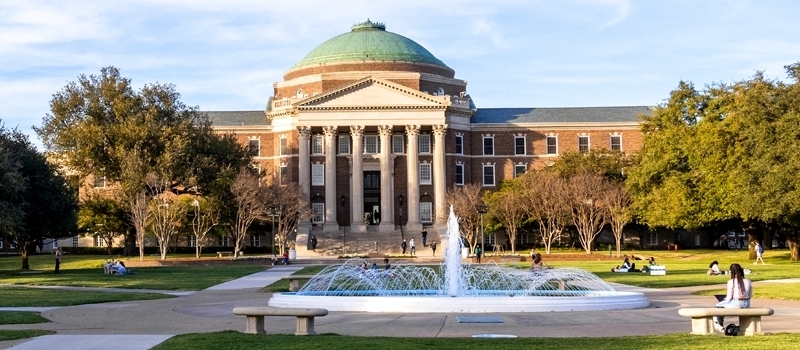
The Texas Supreme Court has ruled that a regional body of The United Methodist Church (UMC) can pursue legal action against Southern Methodist University (SMU) over its effort to disaffiliate from the denomination.
Founded in 1911 by the predecessor denomination of the UMC, SMU is home to the Perkins School of Theology, which is one of 13 UMC seminaries receiving aid from the denomination’s Ministerial Education Fund.
The court’s decision was issued last Friday in the case of Southern Methodist University and Paul J. Ward v. South Central Jurisdictional Conference of the United Methodist Church and Bishop Scott Jones.
Justice Debra Lehrmann authored the majority opinion, stating that the “UMC South Central Jurisdictional Conference [“has statutory authority to sue SMU to enforce its rights under the articles and the Texas Business Organizations Code”]” and that the Conference “may pursue, at least at this stage, its breach-of-contract claim as a third-party beneficiary of SMU’s articles of incorporation.”
Lehrmann explained, “SMU is not required to act for the Conference’s benefit in the way that corporations must act for the benefit of their shareholders or members,” but added, “as with for-profit corporations, a nonprofit corporation’s articles do constitute a contract between SMU and the State of Texas.”
“The Conference alternatively alleges in its petition that it is a third-party beneficiary of that contract and may pursue its breach-of-contract claim in that capacity. We agree.”
The court also ruled that SMU was “entitled to summary judgment on the false-filing claim,” rejecting the UMC’s allegation that SMU knowingly filed false paperwork when it revised its governing documents.
In response, SMU issued a statement to The Texas Tribune expressing satisfaction with the decision to dismiss the false-filing claim and reaffirming its readiness to defend its decision to leave the denomination. Megan Jacob, SMU’s director of media and community relations, said, “SMU remains proud of its Methodist heritage as we move forward with advancing SMU’s mission and providing enriching education for all students.”
Meanwhile, the conference released a statement, emphasizing that “the favorable opinion from the Court supports our original position that SMU must seek the approval of the SCJ when making changes to its amendments,” and expressed a desire “to see this matter brought to a peaceful resolution so that our historic connection to the university can be fruitfully maintained for future generations.”
The longstanding debate within the UMC over issues such as the blessing of same-sex unions and the ordination of individuals in same-sex relationships culminated in February 2019, when delegates at the special General Conference approved the Traditional Plan, reaffirming traditional rules on ordination and marriage.
Later that year, amid divisions, the SMU Board of Trustees declared that they, rather than the conference, were “the ultimate authority for the university.” In December 2019, the South Central Jurisdictional Conference (SCJC) filed a lawsuit claiming SMU’s actions were “unauthorized” and asserting that the jurisdiction “was supposed to be the ‘electing, controlling, and parental body of SMU.’”
While a Texas district judge initially ruled in favor of SMU in 2021, a three-judge panel of Texas’ Fifth Court of Appeals reversed that decision in July 2023. The panel reversed the district court’s dismissal of the breach-of-contract claim filed by the conference, but upheld the dismissal of the claim that SMU breached its fiduciary duty when it disaffiliated from the church.
In October of the previous year, the Texas Supreme Court agreed to review the case.



















